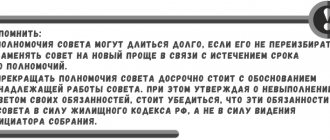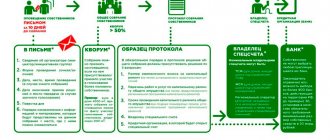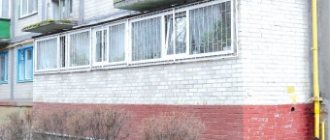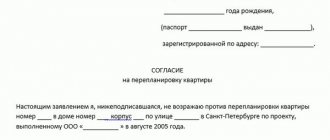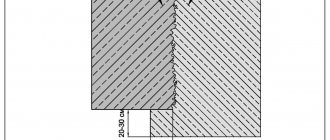Imagine the situation: a management company maintains a house. It has 9 floors and 8 entrances. In any of them, large and small emergencies can occur - the elevator breaks down, the garbage chute is clogged, a window breaks, cockroaches appear, and so on.
And so the residents go to the management office in an endless stream with their complaints. Management company employees rush from door to door between the entrances. Or, they ignore complaints altogether.
Sad picture.
To avoid this, apartment owners elect their own representative.
Who is the senior person in the entrance or house?
The work of the chairman of the house council, the procedure for his election, rights and official responsibilities are enshrined in the Housing Code (Article 161). But there is no mention in the law about the elder in the house. These positions are similar, but still different.
In most apartment buildings, it is the elders who are chosen. The advice of MKD is not particularly widespread in the Russian Federation.
So, the senior person in the house or entrance is a person who is authorized by the residents to speak on their behalf and protect the interests of the owners of the property before management companies and authorities.
In the Novgorod region, for example, seniors were even given service certificates. This simplifies the work somewhat. For example, you can freely enter any office of the Criminal Code or drive out alcoholics who have chosen a bench in the yard.
When should you be re-elected? How many times can you be “senior”?
The concept of re-election of a senior has rather vague formulations - after all, this is not the post of president of the country. However, there are several conditions for the candidate. How to change the person in charge at home? You will be able to take this position if you meet the following requirements:
- be the owner of one of the apartments;
- have a reputation as a capable and responsible citizen;
- obtain the support of the majority of owners;
- be over 18 years old.
For how long is the elder elected?
And how often should re-elections be held?
The term for electing the house elder and his powers is determined by the meeting of residents.
You can elect a “head” for one year, but often this period is at least 2 years - few people want to waste time on the next election.
How many times can a person be re-elected to such a post? This is not stated anywhere in the law or regulations and no document confirms this. The Housing Code also does not include such information.
Therefore, if a person meets the requirements listed above, he can be re-elected an indefinite number of times. This often happens. A smart organizer holds office for 20 or even 30 years, periodically winning formal elections.
Call a lawyer
We will select a specialist for you
8 Moscow
8 SPb
Rights and obligations
At the local level, regulations are adopted regulating the status of the building manager (as people still say). And the residents determine their rights and responsibilities themselves.
But, despite the nuances that arise in individual houses and regions, there are general issues that fall within their terms of reference. They differ among the elders at home and at the entrance.
House supervisor at the management company
Must:
- Monitor the sanitary condition of the house and the surrounding area - whether the garbage is taken out on time, whether the entrances are cleaned regularly and cleanly, whether there are rodents, cockroaches and other pests, whether the residents themselves litter the house.
- Maintain documentation - draw up minutes of general meetings of residents, store acceptance certificates for repair work, a certificate of readiness of the house for the heating season and other papers related to the operation of the premises.
- In case of accidents, breakdowns of engineering equipment, violations of the integrity of the roof, walls (cracks have appeared, paint has peeled off), organizes repairs together with the management company.
- Monitors the progress of repair work, accepts them or points out deficiencies.
- Ensures fire safety and interacts with relevant authorities.
- Cooperates with the police to maintain law and order.
- Conducts preventive and explanatory work with residents - provides telephone numbers of the city's emergency services, explains the procedure for charging for utility services.
- Keeps keys to the basement and attic.
- Report on the work done once a year at a general meeting.
What the property manager has the right to:
- access to any documents, including financial ones, related to the operation of the house and its MOPs;
- propose to the management company measures to improve the condition of the local area and common areas in the house - what repairs need to be done first, organize a playground in the yard, put up fences, make a separate stroller if there is free space, and much more;
- hold general meetings of residents;
- control the activities of the management company, demand information on the fulfillment of contractual obligations.
The list of rights and responsibilities can be continued endlessly. Even in the most detailed contract and job description, it is impossible to predict what situation will arise in life at home.
Familiarize yourself with the methodological recommendations for organizing the activities of a senior person in the house (entrance), approved by the Advisory Council for Territorial Public Self-Government of the city of Novosibirsk as a sample. ⇐
Senior at the entrance
The powers of this position are less broad and are limited to a specific entrance. He can also convene meetings of residents, but at his own entrance.
Senior residents of the building can discuss issues related to landscaping: quality of cleaning, general sanitary condition, minor routine repairs. Residents have the right to decide, for example, to paint walls, replace windows, change the front door. Or put on the agenda a conversation with new neighbors who make noise and smoke on the landing.
The head of the building reports to the head of the house and has the right to be elected to this position.
Sample minutes of a general meeting of residents of an apartment building
Only persons who have ownership rights to apartments or their representatives (by law or by proxy) have the right to vote at a meeting of owners of residential premises. Such a meeting will be valid if more than half of the homeowners are present.
Remember! To comply with the legitimate interests of residential premises owners, when a meeting is held, the following algorithm must be followed:
In an apartment building, as a rule, there are many apartment owners, so general meetings are necessarily held to resolve issues related to joint property. According to Article 45 of the Housing Code, the procedure for conducting them is as follows:
- Annually in a mandatory (planned) version.
- At the initiative of any of the owners if necessary (at any time).
- At the initiative of the Management Company at any time as necessary.
The composition of the meeting is as follows:
- The chairman leading the meeting. Elected from among the owners by simple voting.
- A secretary who records the progress of the meeting and is also selected from among those present.
- Quorum – i.e. all those gathered, the number of which must be at least half of the total number of residents. It is with this composition that the meeting can make decisions. Otherwise, they are ineligible, and everyone must be gathered again.
- Specially invited authorized persons (representatives of the local Administration, deputies, public figures, officials of the Management Company, etc.).
Often, a Counting Commission is elected to participate in the event, which is responsible for counting votes and recording the corresponding results.
The order of the meeting is as follows:
- Registration of all present owners (written).
- Opening speech by the chairman, announcement of the agenda.
- A step-by-step analysis of each issue with mandatory voting, which can be carried out by a simple show of hands or using ballots. The latter option is much more convenient, since even the slightest inaccuracies are eliminated, as well as the possibility of vote falsification. Everyone present in a particular position is required to vote: “FOR” or “AGAINST”. If the position is not taken, the vote defaults to the “Abstain” category.
- Analysis of personal issues of owners.
- Summing up and closing words. Adoption of the minutes of the general meeting of owners.
The standard form for minutes of a general meeting of residents includes several mandatory items:
- How many owners were present?
- Who was invited except the owners (if any).
- Agenda (listing all clearly defined items).
- Next, each issue is described in detail: how it is regulated by law with references to specific acts, what was decided by the meeting, how many votes “FOR” and “AGAINST”, how many “abstained”, indicating the total area of those who voted how.
- Date, time, venue and signatures of the chairman and secretary.
It is also assumed that several applications will be nested:
- With a surname list of all owners who participated in the meeting (the apartment number, its area are indicated, each owner’s own signature is affixed).
- With voting results for each issue (number of votes and total area).
- Lists of members of the HOA Board or the Audit Commission who were elected from among the participants.
The minutes of the general meeting of residents and appendices to it are signed by the Chairman and the secretary, and stamps are affixed to them; together they are considered a single document.
The standard form and its form are given below.
Who can be the person in charge of the house or entrance to the apartment building?
A person can become like this:
- who is the owner of the residential premises in this house/entrance;
- has reached the age of majority (18 years old);
- capable
These are the basic requirements. There are also additional ones. He must be a literate person, active, able to communicate with people of different ages, education and social status. Since the elder’s responsibilities involve contacting administrative authorities, he must have free time.
Most residents do not have free time: during the day they are busy at work, in the evening they have family chores. Therefore, seniors in the house/entrance often become retired people who are active, do not have any special health problems, and who have experience in organizational work (for example, teachers, military personnel, etc.).
Do complaints affect early shifts?
Often the manager does not meet the expectations of residents, fulfilling his duties “carelessly.” The reasons may be different: lack of time, desire, and often experience in solving organizational issues. Is it possible to deprive the “would-be manager” of his powers and hold early voting? Of course.
Experience shows that a complaint against a senior person in the house is most often associated not so much with shortcomings in some aspects, but with boorish and arrogant behavior. Many people believe that, having received such a position, they become “bosses who have the right to command residents.”
However, it is important to remember that the residents remain the main ones, and these people represent their interests, that is, they work for them. This gives you, as the owner of the apartment, the right to “fire” such an employee. True, doing this alone will be problematic, because a common solution is needed.
In this case, there are two ways to change the senior:
conducting early voting; the residents themselves can convene a meeting, notifying all owners in advance; remember that elections can also be held in absentia;
How is the election of a building manager, a senior person in the building, carried out?
Elections take place at a general meeting of residents. Only homeowners have the right to vote.
In order for elections to be considered legal, certain conditions must be met:
- notify about the upcoming meeting 10 days in advance by posting a notice on the front door or going around the apartments of the house/entrance with written notice;
- the presence of more than 50% of the owners is required, that is, to achieve a quorum;
- others can vote later by filling out an absentee ballot;
- discuss the rights and obligations of the manager, payment for his work;
- draw up a protocol and secure it with the signatures of those present.
The candidate for the position must agree to perform the duties. Otherwise, his candidacy will be disqualified.
A manager is selected for a certain period of time. Which one is up to the residents to decide. Usually this is 2 years. After the deadline, elections are held again.
Residents can re-elect the previous owner or find a new one.
Residents have the right to enter into an agreement with the manager, which an experienced lawyer will help draw up. Or you can create a job description on your own.
The instructions are drawn up in free form. But it is advisable to describe the following points:
- the term for which the manager is elected;
- payment procedures or benefits;
- his rights and obligations.
Download a sample of the standard instructions for the entrance supervisor from the link.
Power of attorney
The Housing Code enshrines the right of the owner to be represented by another person at the general meeting of residents and during voting. This happens when you need to leave for a long time, for example on a business trip. Or personal presence is impossible due to illness.
Then a power of attorney to represent interests is issued. It must be certified by a notary and presented at the general meeting.
Who appoints and pays the salary of the entrance manager, house manager
Since the work of the house manager is of a public nature and is not enshrined in law, there is no official payment for it. But the owners have the right to set the payment themselves. This will be a small incentive to be conscientious about your responsibilities. And generally agree to fulfill them. Because there will be a lot of hassle, and not everyone will want to take on this burden.
Most often there are 2 payment options:
- The salary is set by the management company. If the management company is responsible for the management of apartment buildings and strives to find a common language with the residents, then it will be more profitable for them to pay a person who would resolve controversial situations between the residents of the house. He also reported on emergency incidents when the intervention of the management company was required, and advised that common property should be repaired first.
But this option is not suitable for everyone. After all, the person in charge of the house/entrance is primarily obliged to protect the interests of the residents. And in the event of any conflict between the residents and the management company, he will be obliged to obey the latter. After all, they pay him money.
- Residents themselves pay for the services of the building manager. They can agree with the management company so that this amount is indicated on the receipt for housing and communal services as a separate line. Or give the money in cash.
Each MKD sets the monthly payment amount at its own discretion. There is one caveat: if an apartment whose owner has accumulated a debt for this payment is sold, then this debt does not transfer to the new owner.
It happens that the senior person in the house is on the staff of the management company/homeowners association. Then an additional payment is assigned to his salary, but not more than 5% of the salary. Although the amount of the increase is decided by the director of the management company .
Privileges
Instead of a salary, residents can assign benefits.
Benefits may vary at the discretion of residents and in agreement with the management company. For example, exemption from paying for using an intercom, for garbage collection, and paying for concierge services.
But payments for utilities and contributions for major and current repairs must be made in full. Benefits and or complete exemption from these payments are illegal.
We must not forget that if residents set a manager’s salary or benefits, then they have the right to demand strict compliance with their duties. And while a person works on a voluntary basis, asking something from him will be problematic and even illegal.
What benefits are granted to a senior citizen in an apartment building?
Are there benefits for senior housemates in apartment buildings? It is impossible to say for sure, because the legislation does not provide for this. It all depends on the residents themselves. Only they have the right to decide whether the manager will have benefits or not.
Sometimes the management company is responsible for providing privileges. Benefits include free garbage collection, use of intercom and other common facilities. In some areas, a 50 percent discount is established for the eldest in the home for the above services.
Thus, the appointment of a manager is the choice of apartment owners in a residential building. For such a position, a person should be elected who has earned the trust and respect of the residents and has shown himself to be caring towards people and the house.
Tags:
How does the site work?
A user asks a question on the site
The question goes to the duty lawyer
The question is processed: its topic is determined, the question is analyzed, and an answer is found.
Solving user problems is the answer to his question
A lawyer contacts the user and provides him with advice
:
If you find it difficult to formulate a question, call the toll-free multi-line phone 8
How to re-elect the entrance manager, house manager
In what cases is the manager re-elected?
Firstly , the term for which he was elected has expired. Then the residents re-elect the same person again, or appoint a new building manager.
Secondly , the person himself no longer wants to fulfill his duties. The reasons can be different - sick, went to work, just tired. Then you will have to look for a new manager.
Thirdly , violations may be revealed. The most common case is theft of common money. Residents will have to decide at a meeting to refuse the services of this person, he will be removed from his position or held accountable.
The re-election procedure itself is no different from the primary election: announcement - general meeting - elections - minutes.
Elder's choice
How to choose a senior person at the entrance or apartment building?
The selection of a senior person for the entrance or the entire house is carried out in the standard manner for procedures of this kind in the apartment building.
According to the current Housing Code of the Russian Federation, all decisions regarding the management and maintenance of common property must be made by residents of apartment buildings at special meetings, the procedure for which is regulated in articles 44-48 of the code.
- Firstly, any tenant of the apartment building initiates the organization of a meeting, or its holding in absentia. To do this, it is necessary to notify all residents of the house about the future event by registered mail and at least 10 days before it takes place.
- Directly on the day of the meeting, the initiator must draw up a protocol of those who came. When conducting a collection in absentia, distribute the appropriate forms for filling out. Any decisions regarding the management and maintenance of apartment buildings can only be made if the meeting is attended by residents who own more than 50% of the residential area of the house. Otherwise, decisions made at a partial meeting will be illegal.
- Next, voting is carried out to elect a specific person as a senior either at the entrance or throughout the entire apartment building (depending on who was gathered at the meeting). The final decision is made by a majority vote. After which the candidate for the senior position either begins to perform his duties, or his candidacy is rejected.
Responsibility for failure to fulfill duties
Conflict situations often arise between the manager and residents. He may be suspected of theft. A person may stop performing duties. Or he may be accused of taking the side of the management company without caring about the interests of the residents.
In any case, residents have the right to write a collective statement. You can submit it to the housing inspectorate, Rospotrebnadzor, the prosecutor's office, and the police. It is better not to contact him orally. It is the written statement that has legal force.
But do not forget that the position of a house supervisor is not enshrined in law; a person does not receive a full salary. Therefore, it is impossible to force law enforcement agencies to perform their duties. Criminal or administrative liability will arise if applicants can prove embezzlement of common money or other financial fraud. In other cases, you can simply elect another manager.
In general, it is difficult to find a competent, responsible, active house/entrance elder. Middle-aged people are busy at work, and pensioners are sick or simply tired. Therefore, good managers, if they are found, hold these positions for decades. Neighbors and management companies value them. And it is quite natural to assign at least a small reward for this difficult, thankless work.
Legal status of the MKD council
The MKD Council is a body that protects and defends the interests of the owners of premises in the house. The house council can be elected by decision of the owners of the premises in the apartment building in the apartment building that is under the management of the Criminal Code (Part 1 of Article 161.1 of the Housing Code of the Russian Federation). That is, if a TSN, housing cooperative or other specialized consumer cooperative has been created in the house, then the MKD council can no longer be elected.
The MKD Council is elected for 2 years, unless a different period is established by the decision of the OSS (Part 10, Article 161.1 of the Housing Code of the Russian Federation). He can be re-elected at a general meeting of owners. The number of members of the council of apartment buildings is determined by the decision of the general meeting of premises owners (Part 4 of Article 161.1 of the Housing Code of the Russian Federation).
The decision to elect the MKD council is made within a year from the moment the house is put into operation. If the decision is not made or not implemented, then the local government body, within 3 months, convenes a general meeting of owners of premises in the apartment building to elect the council of the apartment building (Part 2 of Article 161.1 of the Housing Code of the Russian Federation).
Election and re-election - who can become a building manager
Only the owner of the home in the house can claim the title of eldest!
The eldest or the head of the house receives this status as a result of voting. Elections for a house elder are held at a general meeting of homeowners. The election result is recorded in the election protocol. The introduction of such an administrative unit as the upradom depends on the desire of the residents, and in the absence of it among the majority of residents, there can be no talk of elections. The required quorum of votes has been established - 2/3 of the owners. In the absence of the house manager, the chairman of the house council exercises part of his powers.
According to the law, the initiator of the introduction of a building manager can be any owner, both at a regular and extraordinary meeting, which is also held on the initiative of one of the owners, who notified the others in advance (10 days or more) and drew up the agenda for the meeting.
Only a tenant in whose favor more than half of all votes are cast can become a senior.
In apartment buildings, you can choose a senior person using absentee voting. Only owners have the right to vote; tenants do not participate in voting.
The result is reflected in the protocol, and the decision of the elections is binding on all residents, whether they took part or not.
The senior can be re-elected in a similar manner to the appointment. Elections are being held, OS. Re-election either extends the term of office or terminates it early.
